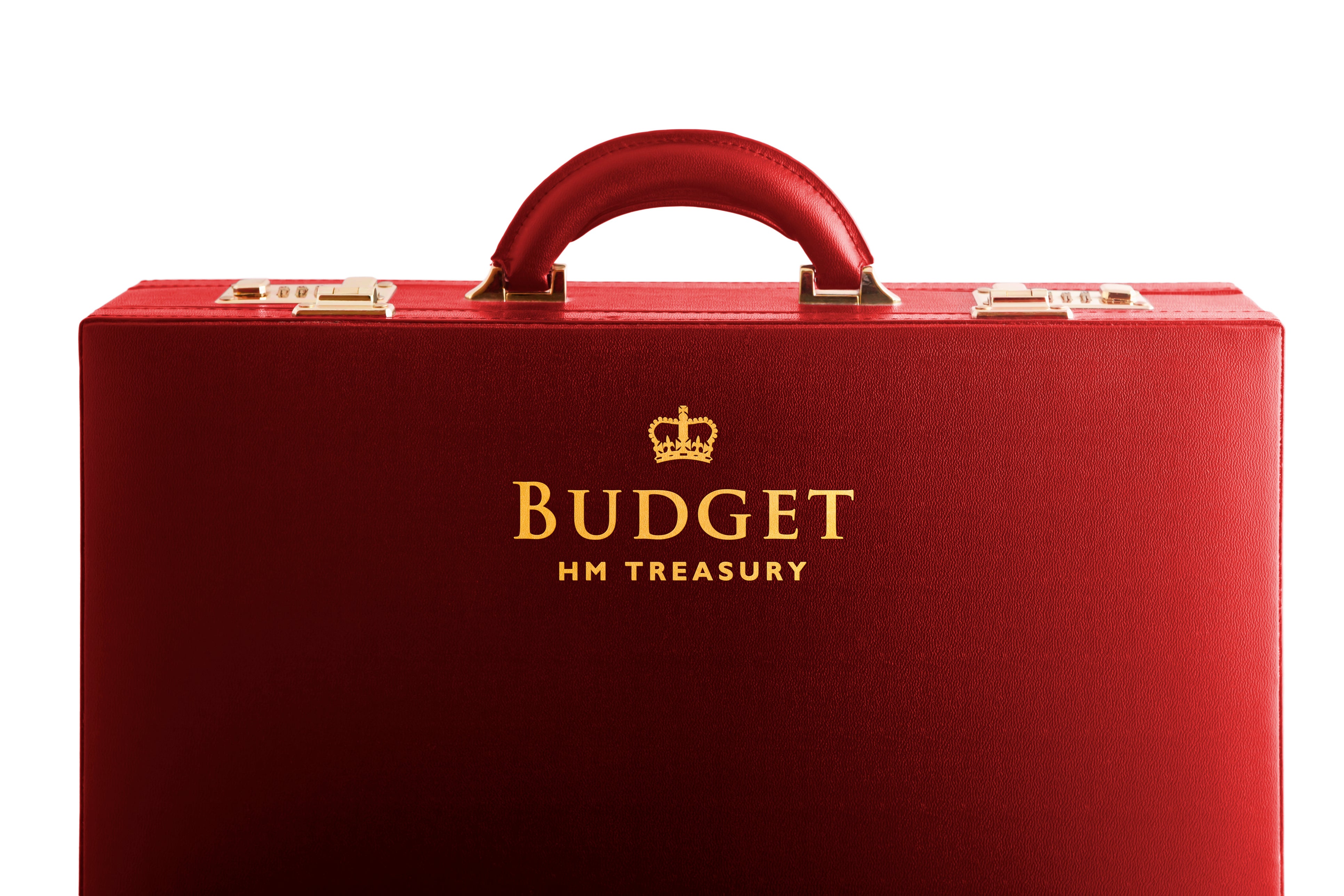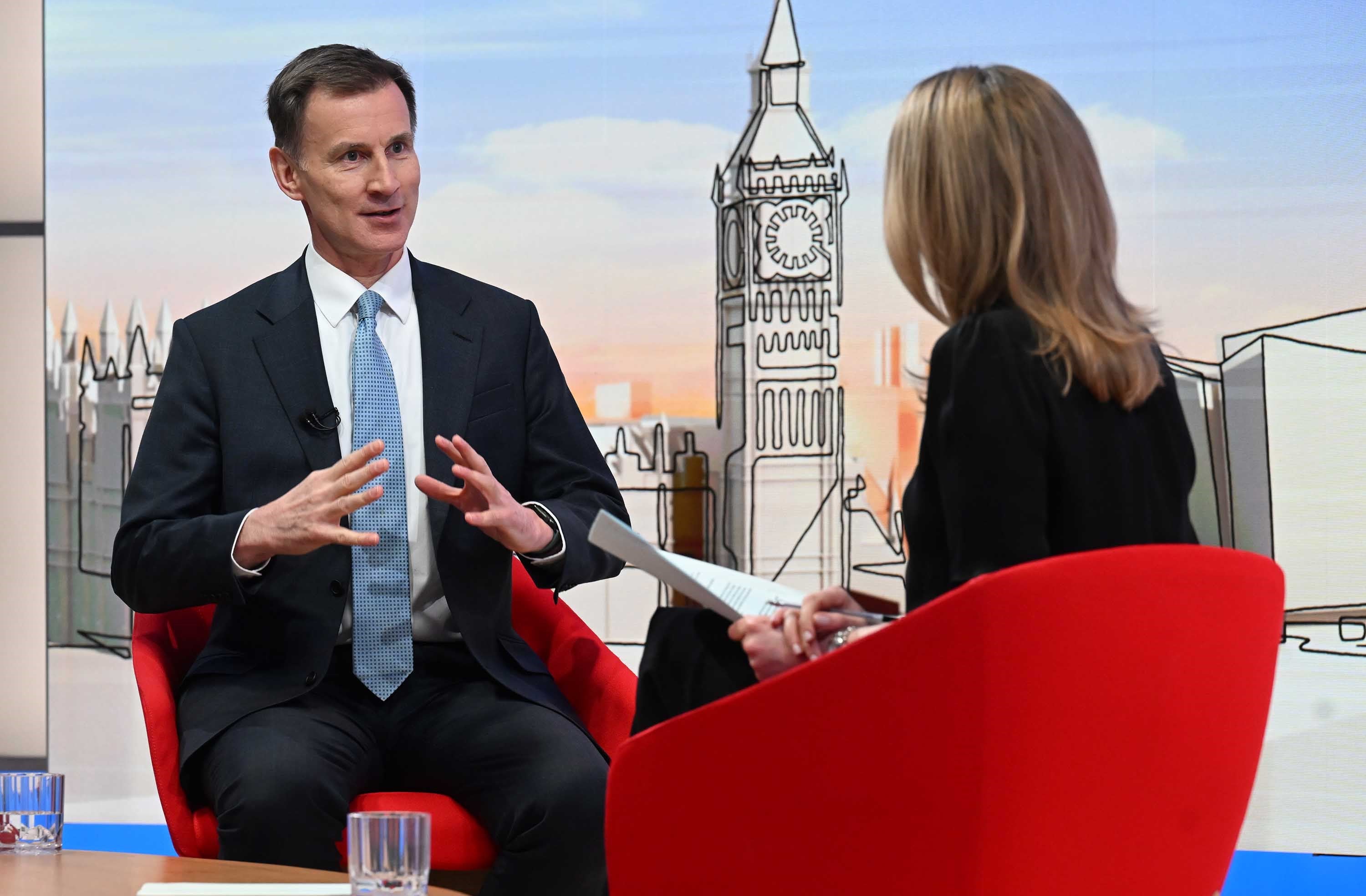Jeremy Hunt could raise business class air fares to fund Budget tax cuts
The chancellor is considering a range of options to fund tax cuts for workers after his headroom was slashed by the OBR
Your support helps us to tell the story
From reproductive rights to climate change to Big Tech, The Independent is on the ground when the story is developing. Whether it's investigating the financials of Elon Musk's pro-Trump PAC or producing our latest documentary, 'The A Word', which shines a light on the American women fighting for reproductive rights, we know how important it is to parse out the facts from the messaging.
At such a critical moment in US history, we need reporters on the ground. Your donation allows us to keep sending journalists to speak to both sides of the story.
The Independent is trusted by Americans across the entire political spectrum. And unlike many other quality news outlets, we choose not to lock Americans out of our reporting and analysis with paywalls. We believe quality journalism should be available to everyone, paid for by those who can afford it.
Your support makes all the difference.Jeremy Hunt could raise revenue on air passenger duty in order to fund tax cuts in this week’s Budget.
The chancellor is considering a number of options that would allow him to commit to billions of pounds of personal tax cuts after recent forecasts from the Office for Budget Responsibility (OBR) gave the chancellor less fiscal headroom than previously thought.
On the list of options is an increase in air passenger duty of business travel, which would amount to a rise in business class air fares.
He is also said to be considering a tax on vapes, an extension of the windfall levy on oil and gas producers, abolishing the non-dom tax loophole and abandoning perks for second homeowners who make money from holiday lets.
Follow our live Budget coverage here
Mr Hunt is paving the way for a mass tax giveaway in Wednesday’s pre-election Budget, with speculation around cuts to income tax or national insurance.

The Treasury is said to be considering cutting 1p or 2p from national insurance or income tax. Mr Hunt told Sky News that his last cut of national insurance in the autumn statement in November was a “turning point” and he hopes “to make some progress on that journey”.
The chancellor is also planning to use the Budget to insist he can make public services more efficient, having announced plans to make the civil service more productive through the use of AI and better data.
Mr Hunt is widely understood to be pursuing tax cuts in the hope of drumming up support for the government, despite recent polling showing that the public do not want to see tax cuts at the expense of public spending.
In a survey by the Fairness Foundation, 64 per cent of voters support keeping taxes as they are or increasing them, while just 16 per cent say they want tax cuts if it means cutting public services.

On Sunday, Mr Hunt said he had a "moral duty" to put more money back in workers’ pockets, but insisted any tax giveaways would be “responsible”.
Mr Hunt told Sky News: “It’s going to be a prudent and responsible budget for long-term growth.”
Conservative MP Sir John Redwood told TheSunday Telegraph that tax cuts should not be paid for with tax rises and that he “would strongly recommend that they forget all these new taxes and extra taxes and get on with the real job which is lower taxes”.
Mr Hunt’s spokesperson declined to comment.
Subscribe to Independent Premium to bookmark this article
Want to bookmark your favourite articles and stories to read or reference later? Start your Independent Premium subscription today.

Join our commenting forum
Join thought-provoking conversations, follow other Independent readers and see their replies
Comments